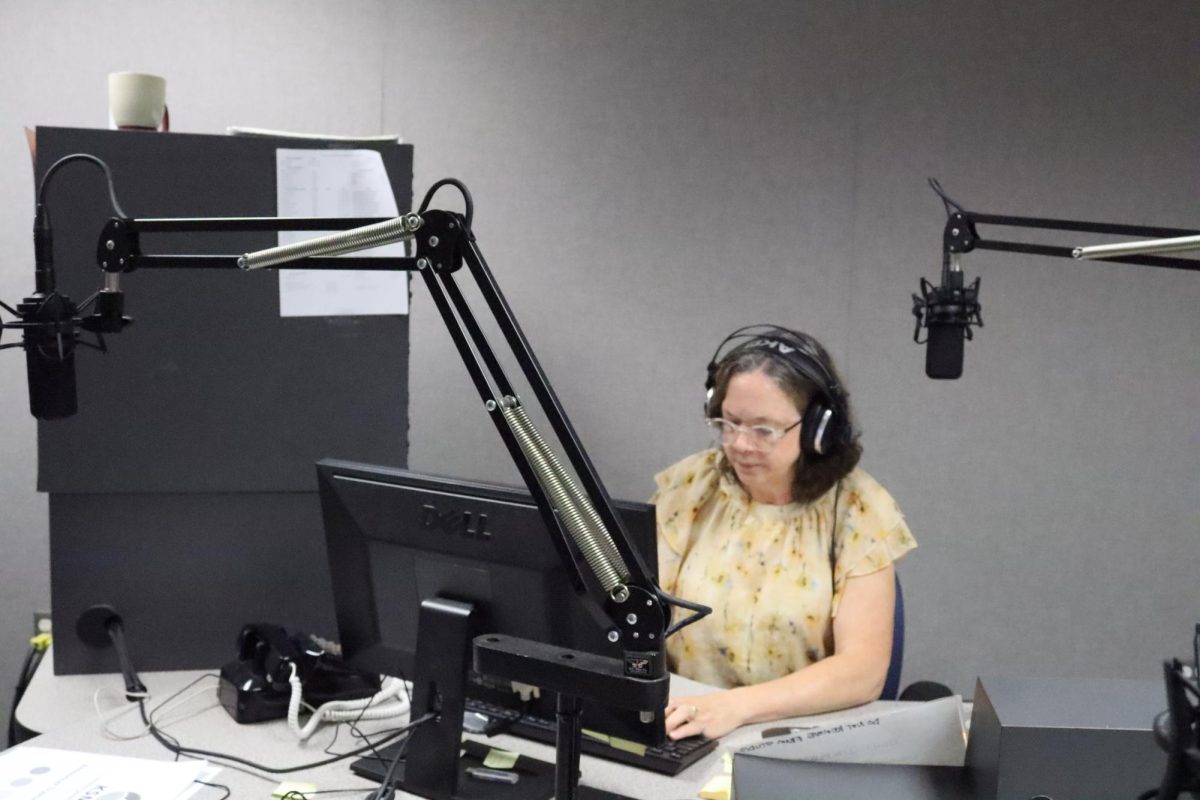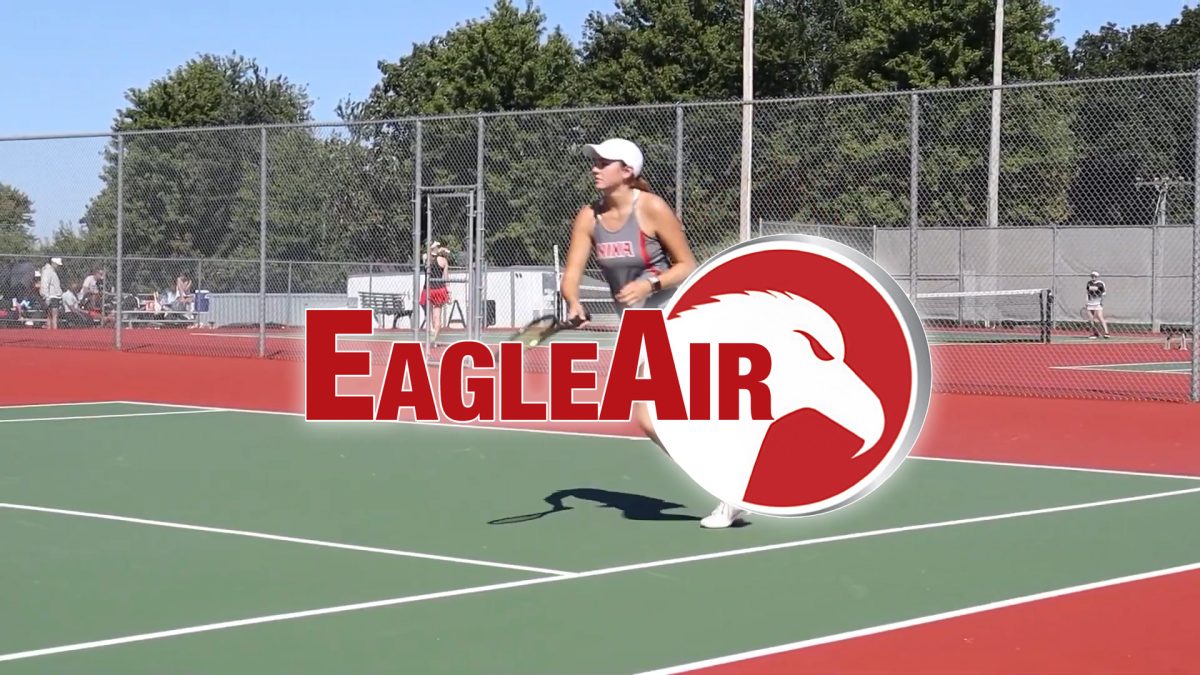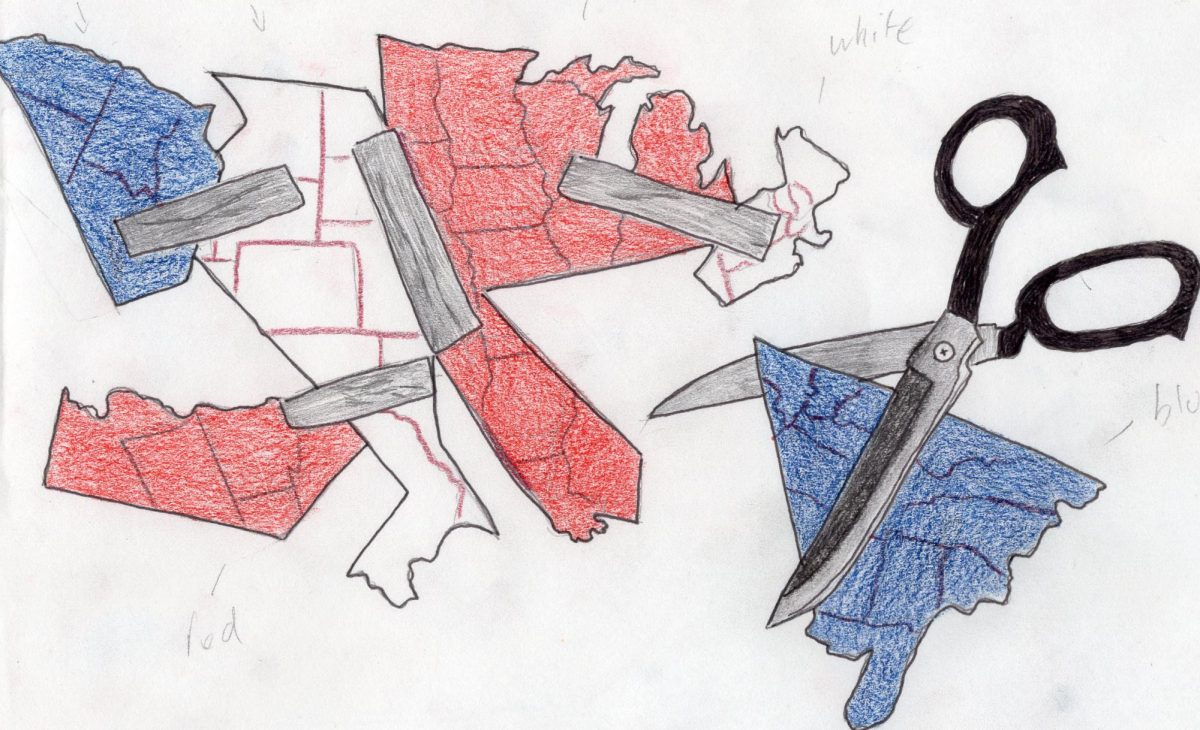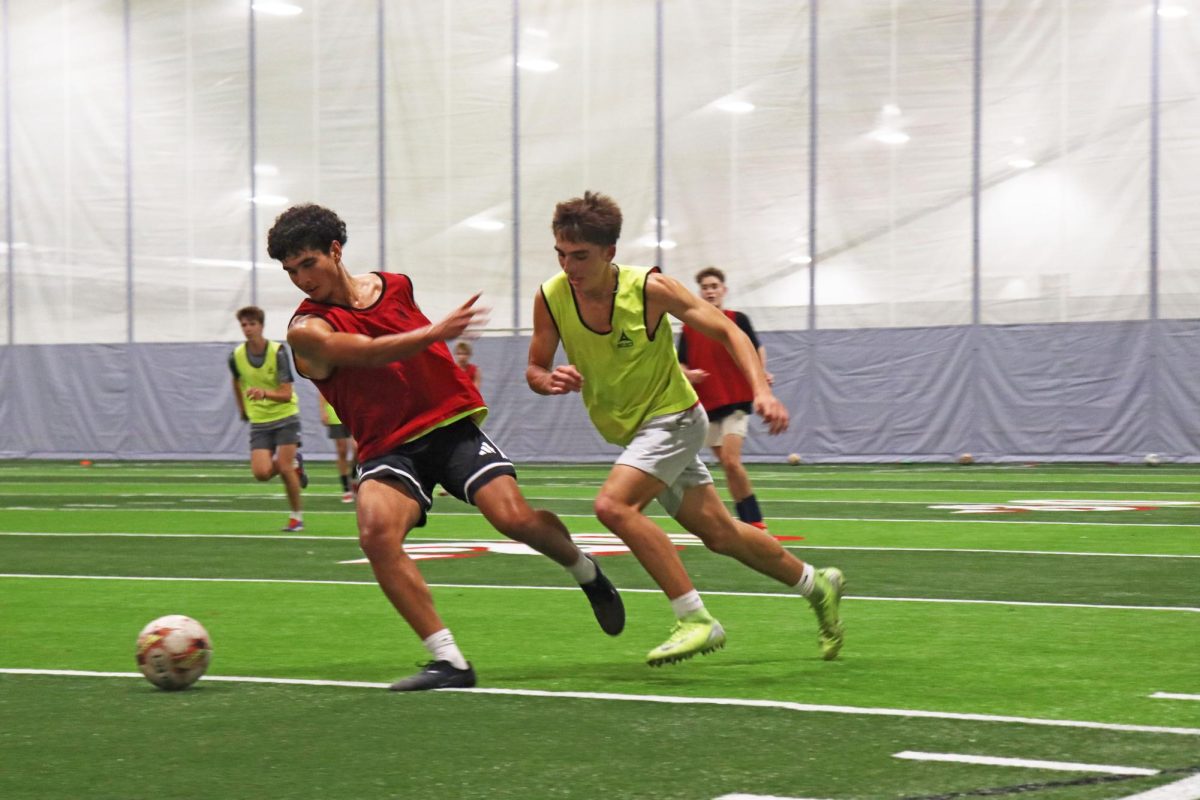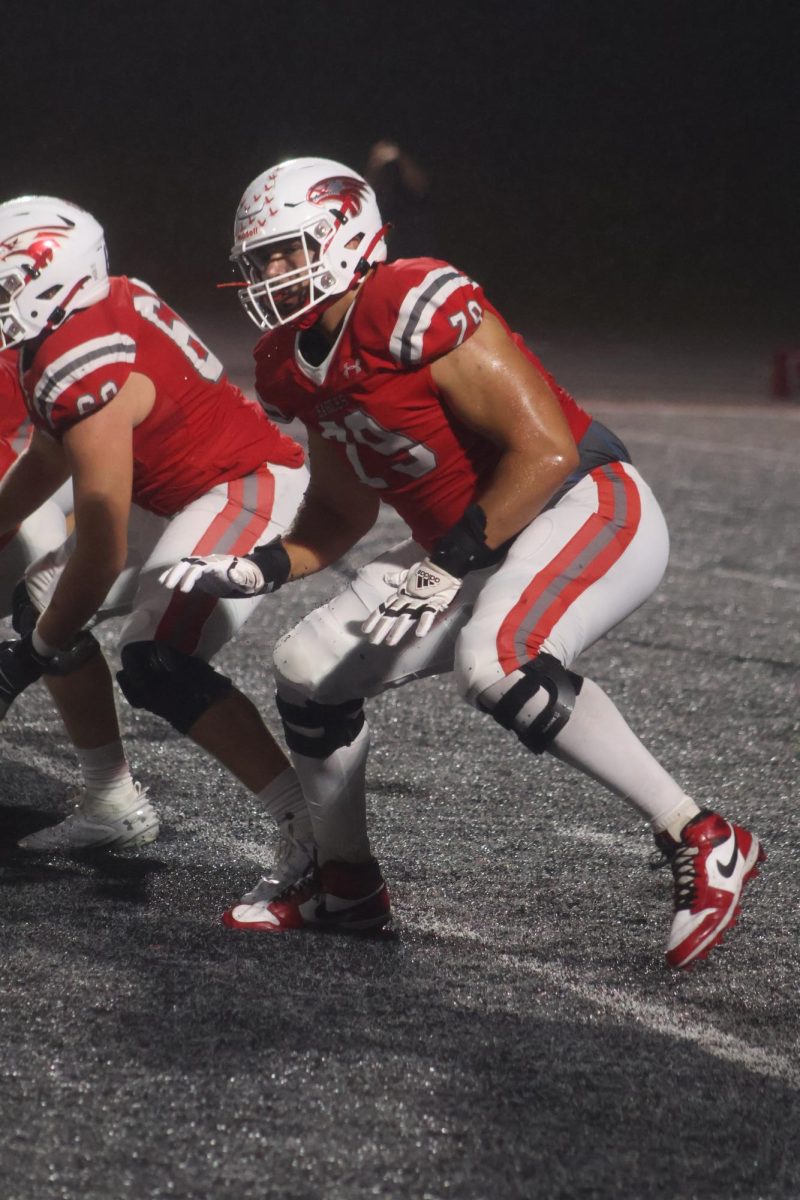Political polarization continues to play a role in the nation’s leadership. Social media remains a major influence for Americans. Advanced Placement government teacher, Alexander Edwards, said there are several environmental factors that contribute to one’s political views.
“I think that a lot of that comes from the peer groups, part of their friends, their parents [and] religious institutions, but I think the main driving factor is what’s on social media,” Edwards said.
Edwards said the actions that take place when shaping one’s political beliefs are called political socialization.
“… You interact with different parts of life and then you gain political attitudes based on those things you’ve interacted with,” Edwards said.
Senior Abigail Fulnecky took AP Government last year. She learned about political socialization and one of its driving factors: social media.
“Today, a lot of people primarily get their news from social media and obviously that can cause a lot of misinformation to be spread,” Fulnecky said.
Dr. Brian L. Ott, a professor of communications at Missouri State University, researches advanced technology and media that leads to public discussion. Ott said that the media tends to target audiences with specific political views.
“This results in niche content and niche audiences, an outcome that is further exacerbated by social media platforms where many people go to get their news today,” Ott said. “These platforms employ algorithms to display content that appeals to people’s existing beliefs.”
Ott said the primary thing teens should know about the political system is that their views are often based on the product of media they consume.
“If they consumed different media or lived in a different place with different media, they would view our political system in an entirely different light,” Ott said.
Knowing where someone’s political beliefs come from can help people gain a broader understanding of the political system; not just in the United States, but also across the globe.
“Political language functions to mediate our political world, which is why people who are fed a steady diet of ideas that conform with what they think; they already know have a difficult time processing new information,” Ott said. “As citizens consume the political language of specific news outlets, they overwhelmingly take on the viewpoints of that outlet — For instance, if one consistently watches media that suggests government is corrupt, then one will tend to ‘see’ government corruption in everything.”
Edwards said viewpoints make a difference at the polls.
“[Political efficacy is] this idea that my vote doesn’t matter, it’s not going to make a difference,” Edwards said. “Every decision I make or non-decision is actually a decision because I’m choosing not to do something…” Edwards said. “I think when I explain this to students they realize that they can’t just sit on the sidelines — they do need to get involved in some way.”
American citizens above the age of 18 can vote for elected officials, giving citizens a say in who governs.
“We have power as American citizens to ultimately be a force for good and to make a positive change within America and within our world,” Fulnecky said.
People can get involved in the political system in different ways.
“Students have multiple ways they can get involved with whether on a local, state or national level…” Edwards said. “As an 18-year-old, you can volunteer to work at a polling place, so basically like a ballot taker. You can actually go out and cast a ballot yourself. You can serve on all different kinds of committees or local boards, you could run for elective office, campaign for politicians that you support [or] you can go out and advocate for certain issues.”
However, before getting involved, Ott said that people should find different credible sources when looking into the political world.
“Consume multiple diverse sources of information,” Ott said. “Also, be relentless in ensuring that information comes from credible sources.”
Fulnecky said when people educate themselves about the political system, it helps them make informed and logical choices.
“Becoming educated about our nation, about its processes, just being more informed in general about politics and how the world works, really allows you to go off of facts, go off of reasoning and makes you more level headed,” Fulnecky said.
People can educate themselves on policies, politicians and political actions that may affect others, on multiple levels.
“If citizens want to have a say in the way they are governed, then they need to understand our political system —both its structure and content…” Ott said. “Students also need to understand the socializing function of media because the media are the primary social force that shape our understandings of social institutions.”
Categories:
Politics Gone Viral
Social media transforms political discourse
Glennis Woosley, Staff Writer
October 11, 2023
0
More to Discover
About the Contributor
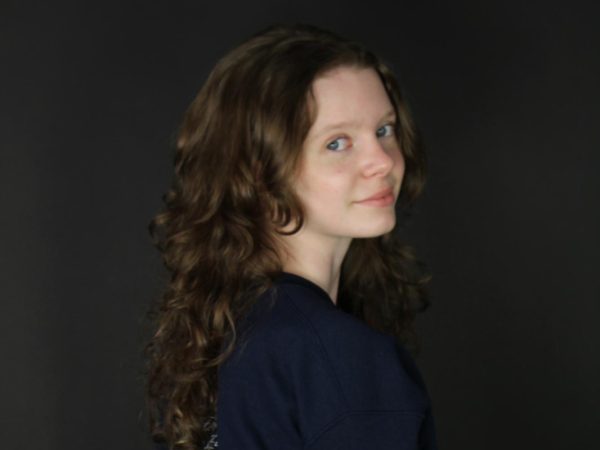
Glennis Woosley, Editor-In-Chief
Senior Glennis Woosley has been editor-in-chief of Wingspan magazine for two years. Over the summer, she went to three summer programs: The School of the New York Times, Missouri Girls State and Medill Northwestern Journalism Institute. Aside from journalism, Glennis competes in speech and debate, where she is the Co-Chair for Nixa’s speech and debate team, FBLA and DECA. She also enjoys playing the bass guitar and following U.S. politics.




